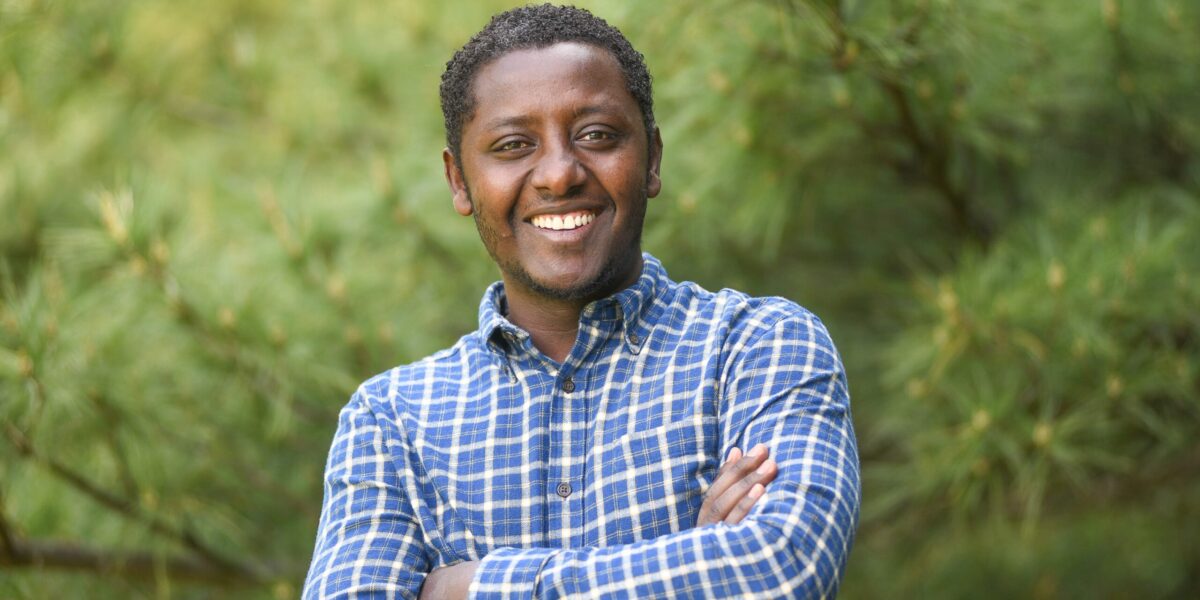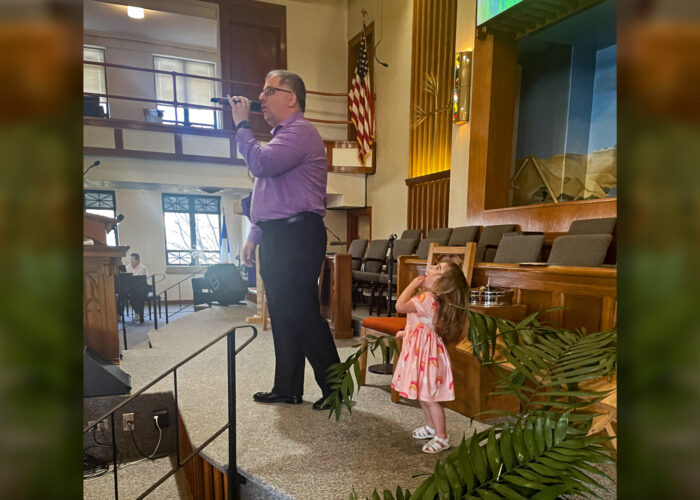Every organization has a purpose, an answer to the deceptively simple question, "Why?" At Mennonite Mission Network, the answer to that question is: to lead, mobilize and equip the church to participate in holistic witness to Jesus Christ — across the street, all through the marketplaces and around the world.
In this Q&A series, Mission Network asks staff members to think about the role they play in the agency and how they see their daily work joining into what God is doing around the world.
Henok Mekonin reflects on his role as training and resources assistant at Mission Network, in partnership with his work at Anabaptist Mennonite Biblical Seminary (AMBS) as a specialist for the Master of Arts: Theology and Global Anabaptism program (MATGA).
What brought you to your role with Mennonite Mission Network?
I am continually amazed at how AMBS and Mission Network collaborated to support my ministry with the Meserete Kristos (Christ Foundation) Church, an Ethiopian Anabaptist church, and its seminary, Meserete Kristos Seminary (MKS)! In 2018, while I was doing my own seminary studies at AMB, I was hired as a teaching assistant for Rebecca Slough, who was teaching a group of Ethiopian students. In 2021 when I was about to graduate, leaders in Ethiopia and at AMBS realized that it would be beneficial for me to stick around after graduation and continue working as a go-between for the MATGA cohort program, offered through AMBS’s partnership with MKS. From time to time, I work with Mission Network’s Training and Resources team to assess the learning and resource needs related to mission education. But the reality is that Mission Network has supported me in many ways in my work at AMBS.
What is your favorite part of your role with Mission Network?
My favorite part of my combined role with AMBS and Mission Network is that I get to work closely with leaders, pastors, evangelists and teachers of Anabaptist churches in the eastern Africa area. It is a huge blessing and opportunity to be able to walk alongside these people, who are on the frontline of evangelism in Africa and elsewhere. They are paying a high price to proclaim the good news. I learned so much from them, as they shared freely from their lived ministry experiences, working in different parts of eastern Africa. Throughout the day, I constantly think about and work on finding ways for these leaders to have access to remote higher theological education. My aim is to make teaching and learning accessible, comprehensible and manageable. I also want to provide resources to help the African church leaders feel empowered and motivated to continue their ministries within their contexts and communities.
How has your perspective on your role with Mission Network changed during your time with the agency?
My work with both AMBS and Mission Network has evolved gradually, and I really like that. The freedom I have been given to do my work is empowering. There is a lot of stress and uncertainty in navigating the challenges of intercultural education. Not once, but multiple times, I’ve found myself caught between cultures and structures. During those times, I needed empowerment and support.
How do you see your role with Mission Network fitting into God’s mission for the church?
My work with AMBS and Mission Network seems insignificant to me. However, I see both institutions working toward God’s big picture for the whole world. These two institutions are not just envisioning their own successes, but they are working for the church globally. Why else would they hire and support a person whose work is for another church, in my case Meserete Kristos Church and seminary. So I truly believe that my role with both AMBS and Mission Network fits into God’s mission for the global church.
What is something that has surprised you about your role with Mission Network?
My surprise and delight come from being supported by two institutions, AMBS and Mission Network. There is so much we can exchange between institutions, if we open some space to be exposed to and learn from what God has been doing elsewhere. In doing so, not only will my church in Ethiopia learn what God has been doing in a place that is far away, but also, the Mennonite churches in North America will learn what God has been doing in Ethiopia. As we continue to work toward strengthening our small institutions’ missions and visions to serve our communities, at the same time we need to try to build healthy and mutual relationships outside of our comfort zone, to become the community that God envisions.




